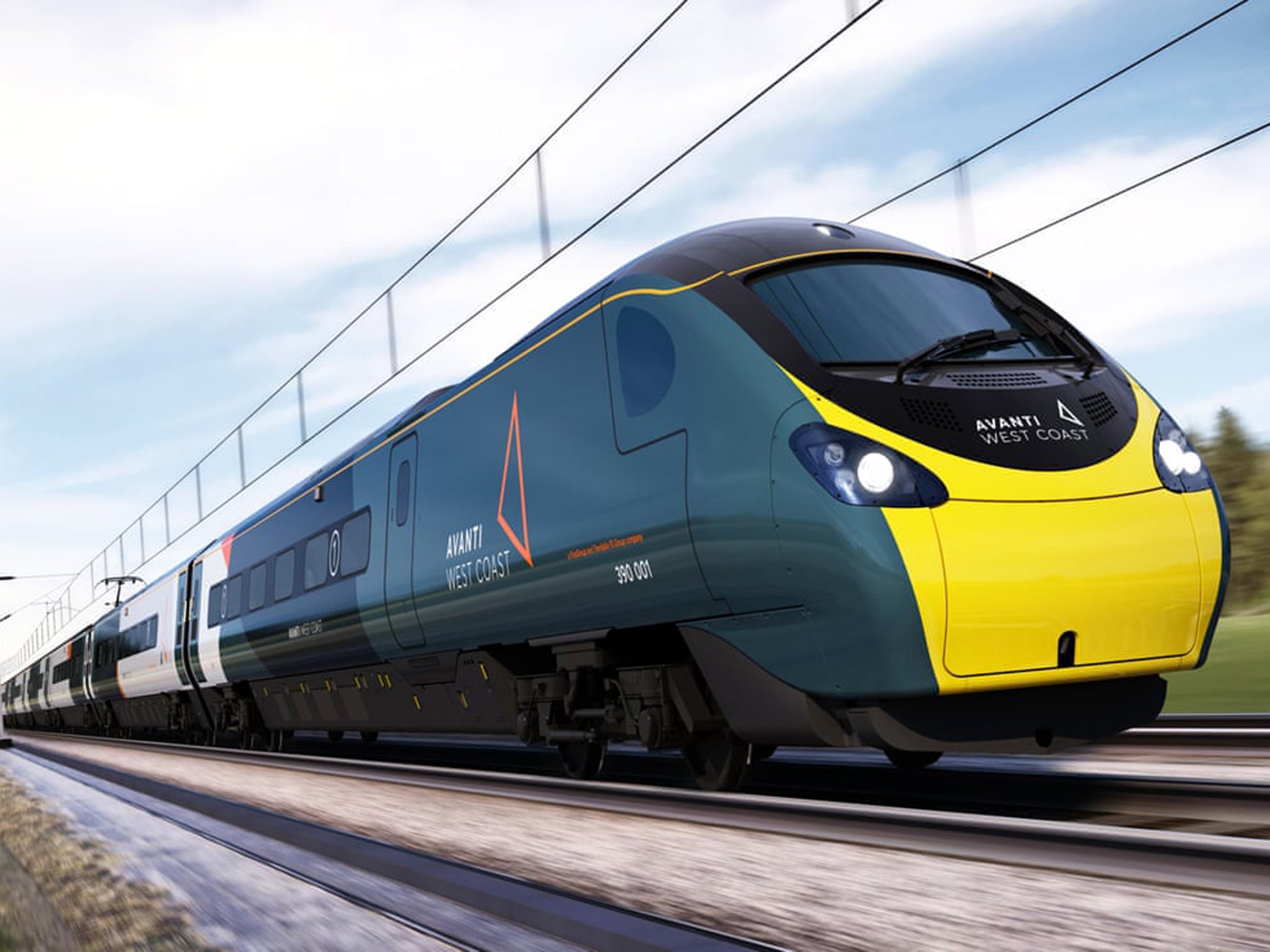Avanti: Possibly the most ironic name to give the west coast train service
A train is a train and a new name and logo won’t transform a slow and dirty service. Chris Blackhurst is amused by the hype


There are times when we receive too much marketing information. When really less is more than enough. The amount of detail that has been volunteered regarding the rebranding of the train services on the West Coast Main Line is one such occasion. Next month, the Virgin trains will disappear, to be replaced by ones bearing the name “Avanti”.
We’re told, as if we did not know, that Avanti is Italian for “forward” and “let’s go”. Except in the case of the railway from London to Glasgow, and many places in-between, it further embodies “ready and fit for the future”.
As someone from the northwest of England, who still travels back and forth to visit relations, I’ve spent many hours waiting at Warrington Bank Quay, Stafford, Preston and the other stops along the line. At least those are stations that bear signs of life. All too often, the train has slowed, literally in the middle of nowhere, with only hedgerows and disinterested cows for company. And no explanation as to what we’re doing there.
The next time there is the juddering squeal of brakes, and the train comes to a halt, I will remember “ready and fit for the future”. Likewise, when the buffet car runs out of food, as it does, and the heating goes AWOL or the toilet is overflowing and disgusting, I will recall the corporate slogan. Avanti ought to encompass providing power in all carriages to the plug sockets so passengers can recharge their phones and laptops. But Richard Branson’s Virgin never managed it. I’m not holding my breath that the new, slicker (as it claims) operator will be any more successful.
This triangle was designed by an independent creative team of more than 100 people working in two locations: an old pickle factory in London and a theatre in Amsterdam. Come again
This is the problem with a company rebranding exercise: coming up with something that promises more than you can deliver. The trains and staff are remaining the same, but the identity is changing. I hesitate to say the service as well, because without a switch in rolling stock and personnel, it is difficult to imagine how the passenger care side of the operation will improve.
Avanti, the dreamchild of train operators First Group and Trenitalia, will insist that they will be well-trained and managed. But I’m doubtful. It will still be the same woman behind the counter who served me on my last trip (delayed by two hours by the way). She was disinterested then, and I suspect will be disinterested again. Similarly, the identical train manager who would not let us go into first-class despite enormous overcrowding caused by all the trains being cancelled or running late.
Avanti provokes a wry smile. I can picture the scene, of the marketing whizzes suggesting it, and everyone nodding their heads in agreement. It’s Italian – everyone likes Italian, it’s so passionate and falls easily off the tongue. It’s about advancing, which is what trains are meant to do. Genius.
It’s so clever that there are already in the UK, Avanti restaurants (Italian, naturally), a firm of accountants, a business that specialises in collecting and disposing of hazardous waste (perhaps they can team up with Avanti the trains to deal with the regularly blocked loos), and one that sells urinal floor mats and giant toilet rolls (again, seemingly, a ready match).
To go with the new name, Avanti West Coast will also have a new symbol, of an orange triangle. This triangle, it’s explained, was designed by an independent creative team of more than 100 people working in two locations: an old pickle factory in London and a theatre in Amsterdam.
Come again? More than 100 people, in two sites, at an old pickle factory in London and a theatre in Amsterdam. More than 100? Not one but two locations in two countries? Why pickles? And a theatre?
When, next, it comes over the Tannoy that my train is slow and that therefore I will miss my connection, I will think of the 100-plus creatives conjuring up... a triangle. But this is not any old triangle. This is a shape, says the marketing-speak, that will symbolise how the Avanti train service will bring communities across England, north Wales and Scotland closer together.
Please. A train is a train. The idea that the good folk of Rhyl want to become mates with the inhabitants of Cumbernauld is fanciful. A train should aim to get you from A to B, ideally as quickly and as comfortably as possible. That’s what a train does. It’s not some sort of touchy-feely networking and self-help facilitator.
The trains will be painted green and white, presumably, happy, light colours that signify environment-friendly and moving forward, as in traffic lights. Presumably, again, the choice derived from much thinking amid the empty pickle jars and deserted theatre seats.
We’re assured that the tilting Pendolino trains will be refurbished and the older, Voyager models phased out from 2022 to be replaced by a new fleet. And possibly the best piece of news of all: there will be 263 more trains a week, as well as new stops along the 400-mile route.
Steve Montgomery, the managing director of FirstGroup’s overall rail division, declares the rebranding marks the start of “a new era in high-speed rail services – one that will generate national prosperity and pride”. Steady on, Steve. Leave that to others. Concentrate on running your trains on time, and making sure they clean and well-maintained. That’s all we ask. It’s all we want.
Join our commenting forum
Join thought-provoking conversations, follow other Independent readers and see their replies
Comments